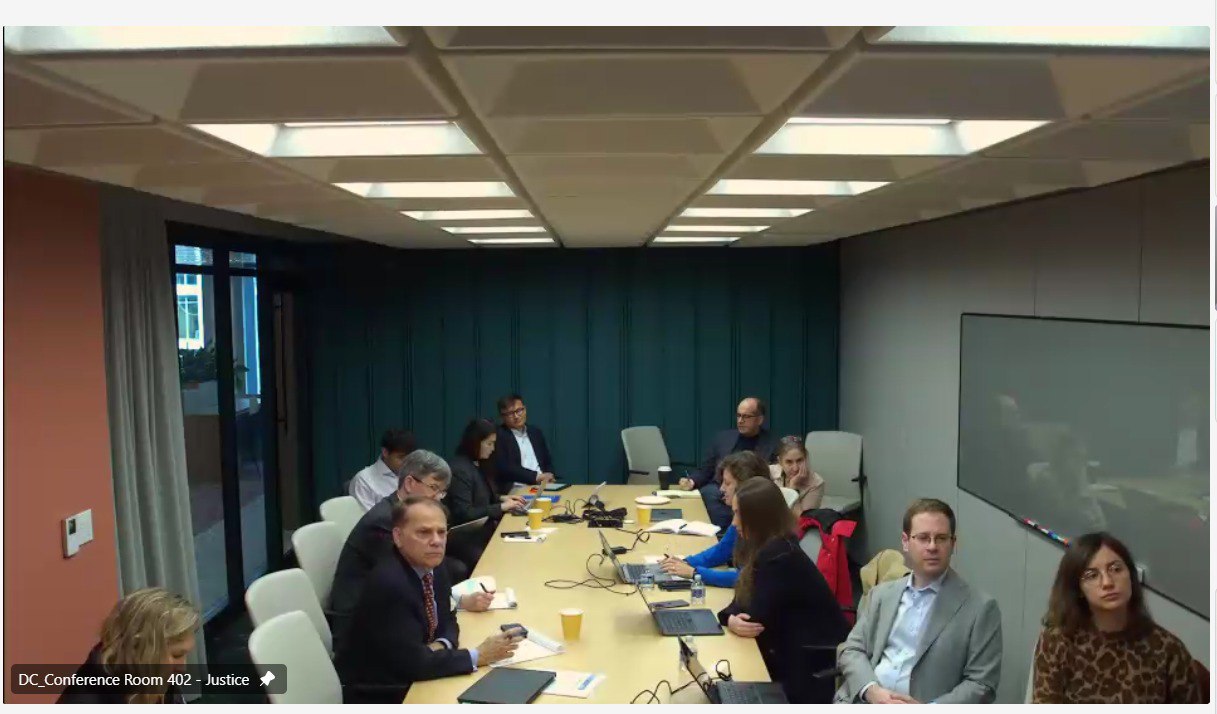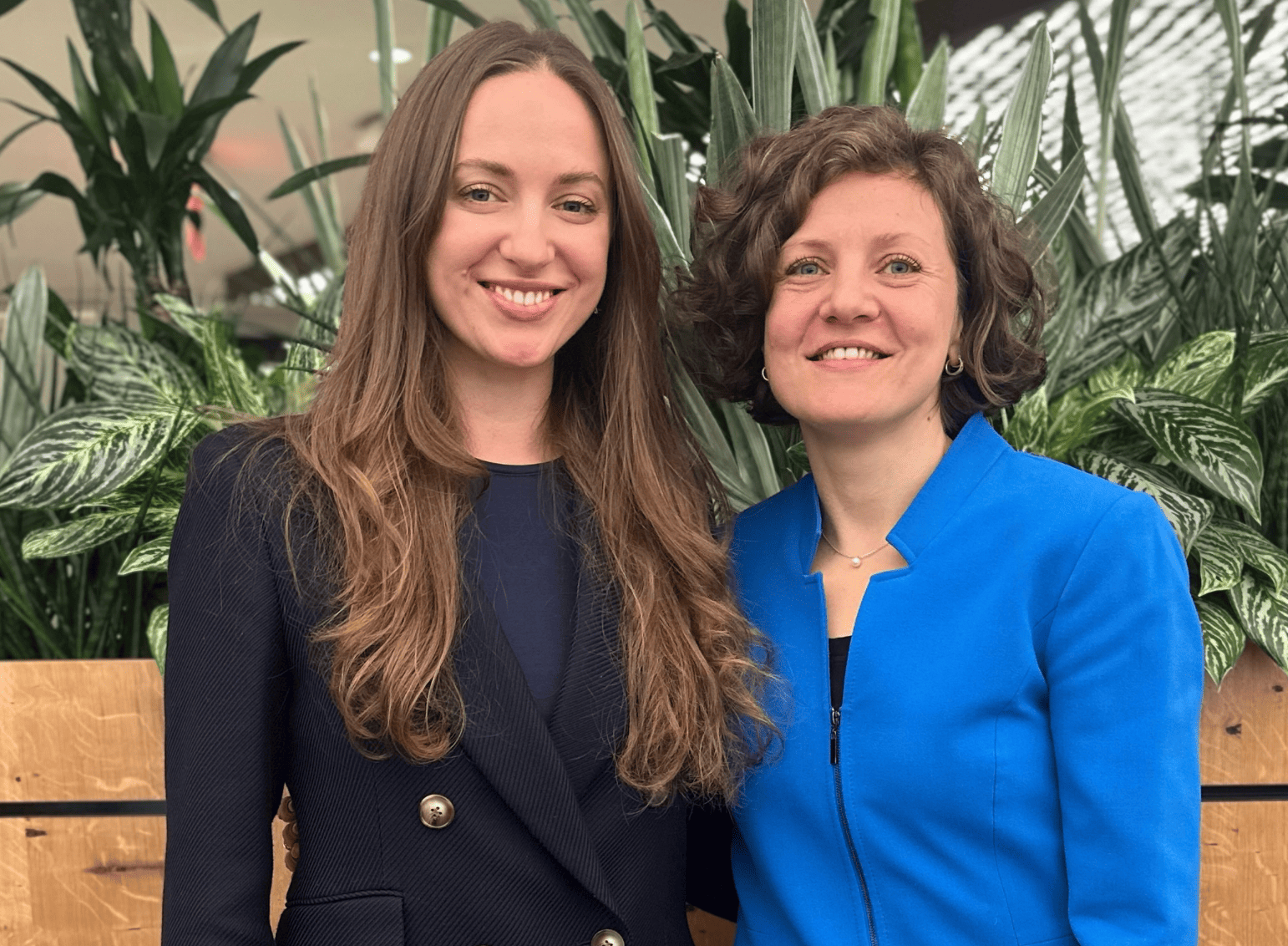On 19 November 2024, the Institute of Legislative Ideas (ILI) together with the National Democratic Institute (NDI) and George Mason University held a roundtable discussion ‘Anti-Corruption Expertise Tools: Experience, Challenges and Prospects’

The event in Washington brought together more than 50 experts from around the world, including Ukraine, the United States, Lithuania, Romania, Chile, South Korea and Indonesia, to discuss best practices and the future of anti-corruption work. One of the main points of discussion was aimed at identifying and exploring key factors of how modern technologies can improve the quality of anti-corruption research.
The risk of corruption increases when laws contain unclear wording, weak enforcement mechanisms, unclear accountability, or excessive exemptions, especially if the legislative process is not transparent. Under such conditions, laws can be created to benefit certain groups or to the detriment of others.
In the early 2000s, the EU's Eastern Partnership countries began to develop tools to identify and mitigate corruption risks in legislation. These methods are called Corruption Risk Analysis (CRA) or Anti-Corruption Expertise (ACE). To date, more than a dozen countries in Eastern Europe and Central Asia, as well as South Korea and Indonesia, have implemented CRA to analyze part or all of their proposed legislation. Other countries are still considering the possibility of applying this approach. In most cases, corruption risk analysis is carried out by executive bodies or anti-corruption agencies. Still, there is a problem of interference by parliaments in some countries in assessing the risk of corruption in the draft laws they are considering.
Decades of experience in conducting anti-corruption expertise in different countries allow us to assess its effectiveness and identify the key factors that affect the efficiency of this process. Over the seven years of its activity, the Institute of Legislative Ideas has become a leader in the field of public anti-corruption expertise in Ukraine. Every year, our team analyses about a thousand draft laws, and the total number has already exceeded 8,000. This activity is not easy, as it is accompanied by both significant successes and numerous challenges related to objective and subjective factors.
Anti-corruption expertise of draft laws in Ukraine dates back to 2013. At that time, it was the responsibility of the Ministry of Justice and the Parliamentary Committee, but these bodies faced numerous challenges. Lack of capacity and political interference limited their effectiveness. Significant progress was made only with the establishment of a specialized anti-corruption body. By 2020, anti-corruption analysis had become more systematic and included not only parliamentary structures but also civil society. At the same time, the annual number of draft laws requiring analysis reached up to a thousand, so the parliament was forced to rely on the support of civil society experts. For example, 85-90% of the Institute for Legislative Initiatives' findings are taken into account by both the Parliamentary Committee and the National Agency for the Prevention of Corruption (NAPC). The successes in the anti-corruption sector have been made possible by the support of society and international partners. Nevertheless, several challenges hinder the effectiveness of the expertise. Experts highlight the creation of legislation that minimizes opportunities for corrupt practices as the main goal.

The main challenges to the development of anti-corruption expertise were discussed, including the lack of resources, andexperts, the lack of mechanisms to ensure that the results of anti-corruption assessment are taken into account in draft laws, and the lack of transparency in legislative procedures, which makes it difficult to conduct a quality assessment. Often, draft laws are analyzed only at the initial stages, while changes made before the second reading are ignored, creating new corruption risks. It is also important to take into account the limited resources, especially at the local level, which limits the ability to conduct comprehensive analyses. Political interference and vested interests, which often influence expert reviews, also remain a serious barrier to legislative transparency.
The roundtable paid special attention to the role of artificial intelligence (AI) in anti-corruption expertise. This topic sparked lively discussions among the experts. Participants discussed how technology can help identify corruption risks in legislation, speed up data analysis, and improve its accuracy. At the same time, it was emphasized that the use of AI is still at an early stage, but has great potential for development. The creation of an AI-based platform that will become a tool for anti-corruption expertise at all levels - from laws to local regulations - is a very promising direction. This is especially important for Ukraine, where there is an urgent need to increase the transparency and efficiency of the legislative process.
Successful practices of anti-corruption expertise from different countries were presented. In particular, Ukraine demonstrates a model of civil society involvement in the review process, which was recognized as one of the most effective in the region. Experts drew attention to the problems of insufficient transparency in the legislative process, limited time for analysis, as well a lack of resources and knowledge in specialized teams. The participants discussed the prospects of creating platforms that would bring together lawmakers, anti-corruption agencies, and the public for the rapid exchange of data and anti-corruption analyses.
The roundtable became an important part of strengthening international cooperation in the field of anti-corruption expertise of legislation. The participants agreed that it is important to continue sharing experiences and developing common approaches to the use of AI in this area.
The Institute of Legislative Ideas expresses its gratitude to all partners for supporting the event. We believe that such initiatives will help make legislation in different countries of the world more transparent and fair.



